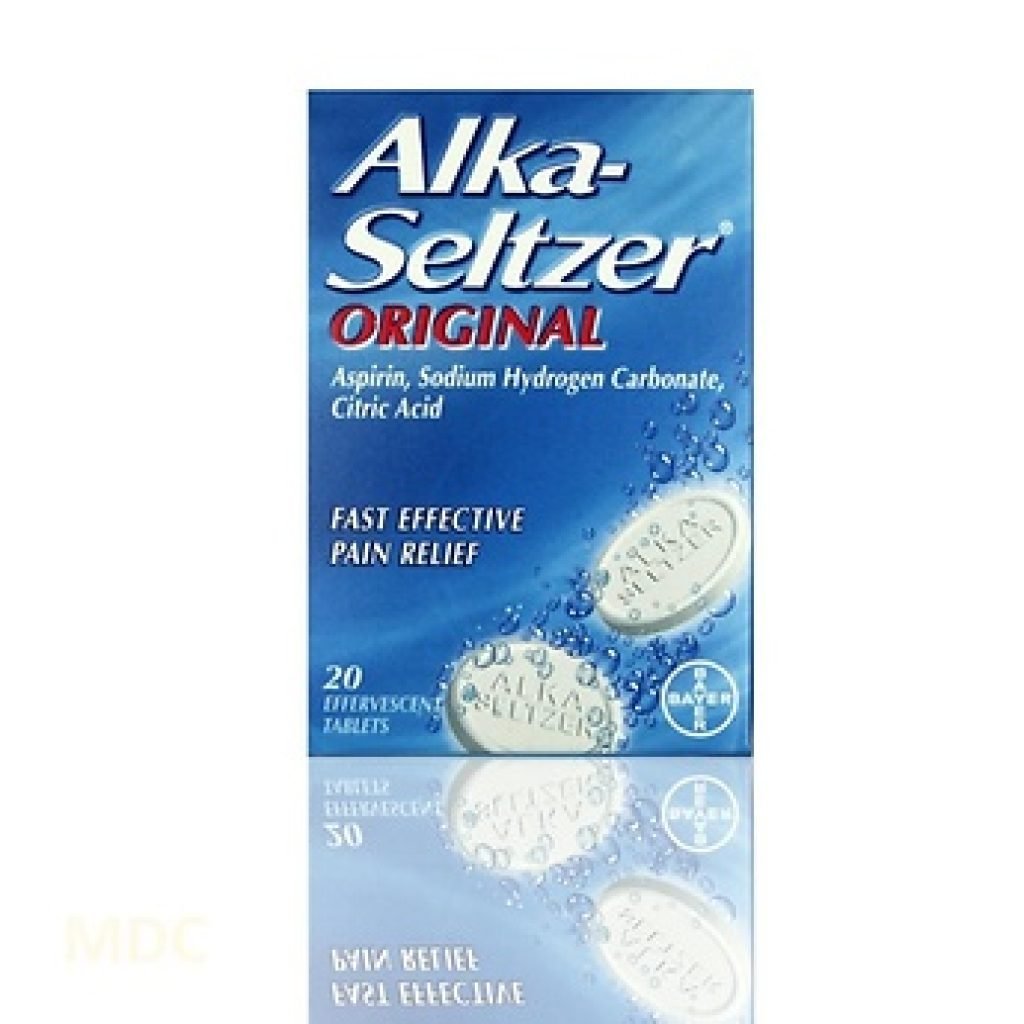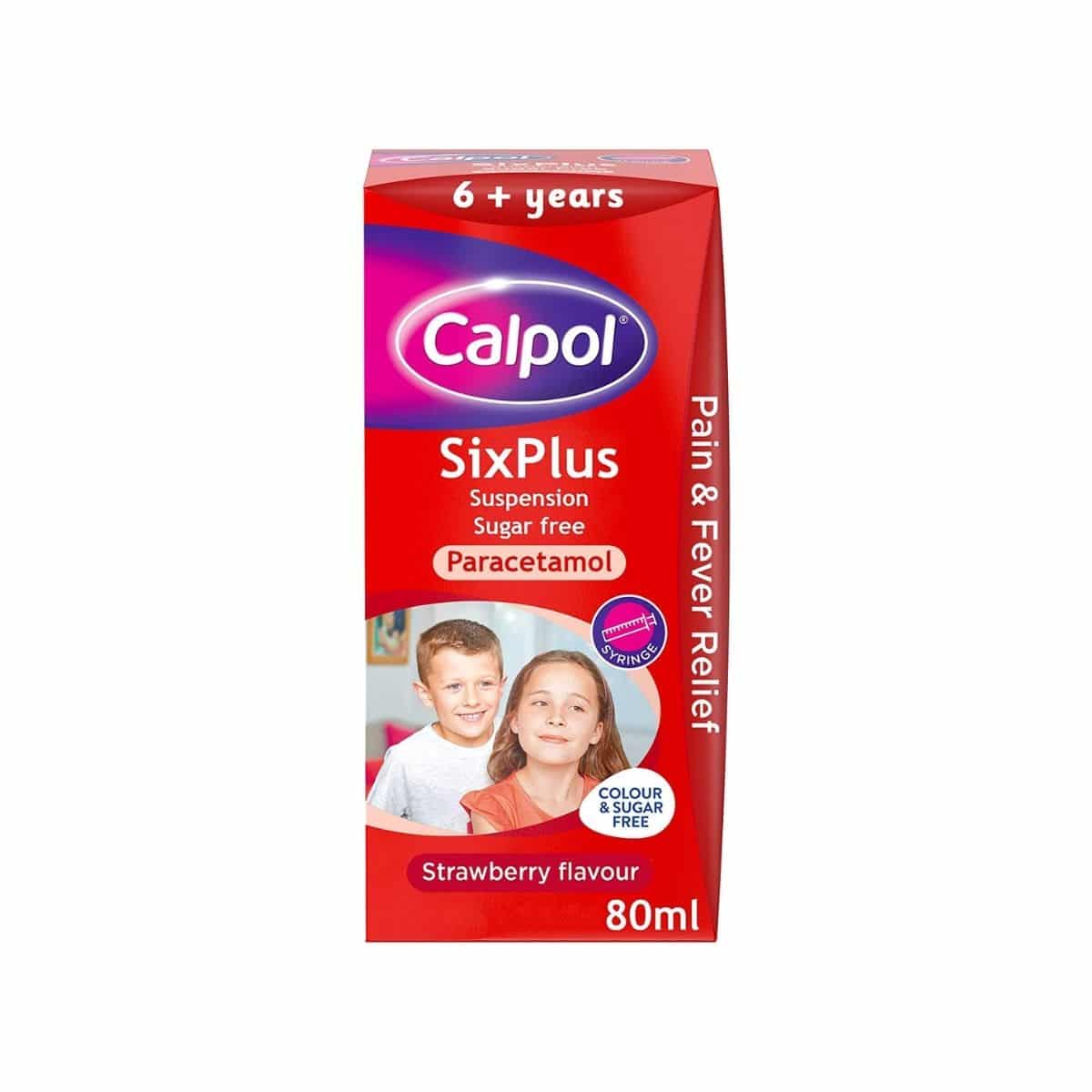Description
Alka-Seltzer Original
Acetylsalicylic acid- 324 mg
Excipient with known effect: Sodium 477 mg per tablet.
Dosage form
Effervescent tablets for oral administration.
White, round tablet, embossed ‘Alka Seltzer’ on one side.
Indications
For rapid relief of pain including migraine, headache, period pains, neuralgia, toothache, sore throat.
Symptomatic relief of rheumatic pain, sciatica, lumbago, fibrositis, muscular aches and pains.
Symptomatic relief of influenza, feverishness, feverish colds.
Method of administration
Alka-Seltzer Original tablets may always be dissolved in a glass of water prior to oral administration. The tablets dissolve more quickly in warm water.
The dose in adults, elderly and children aged 16 years and over, is two tablets in water. The dose may be repeated every four hours, as required, with a maximum of four dosages in 24 hours. These dosages should not be continued for more than three days without consulting a physician. The stated dose must not be exceeded.
Do not give to children under 16 years, unless specifically indicated (e.g. for Kawasaki’s disease).
Contraindications
Acetylsalicylic acid must not be used in the following cases:
▪ hypersensitivity to acetylsalicylic acid or other salicylates, or to any other components of the product,
▪ a history of hypersensitivity reactions (e.g. asthma, rhinitis, urticaria) induced by the administration of salicylates or substances with a similar action, notably non-steroidal anti-inflammatory drugs,
▪ active or a history of peptic ulcers,
▪ haemorrhagic diathesis,
▪ severe renal failure,
▪ severe hepatic failure,
▪ severe cardiac failure,
▪ in combination with methotrexate at doses of 15 mg/week or more (see interactions with other medicinal products and other forms of interaction),
▪ third trimester of pregnancy,
▪ breastfeeding.
Special warnings and precautions for use
Acetylsalicylic acid should be used with particular caution in the following cases:
hypersensitivity to analgesics / anti-inflammatory agents / anti-rheumatics and in the presence of other allergies,
with a history of gastrointestinal disorders,
with concomitant treatment with anticoagulants (see interactions with other medicinal products and other forms of interaction),
patients with impaired renal function or patients with impaired cardiovascular circulation (e.g. renal vascular disease, congestive heart failure, volume depletion, major surgery, sepsis or major haemorrhagic events), since acetylsalicylic acid may further increase the risk of renal impairment,
impaired hepatic function.
Undesirable effects
The listed adverse drug reactions are based on spontaneous reports, thus an organization according to CIOMS III categories of frequency is not possible.
Blood and lymphatic system disorders
Increased risk of bleeding (due to effect on platelet aggregation). In the context of bleeding: haemorrhagic anaemia, iron deficiency anaemia with the respective laboratory and clinical signs and symptoms. In the context of glucose-6-phosphate dehydrogenase (G6PD) deficiency: haemolysis, haemolytic anaemia
Immune system disorders
Hypersensitivity, drug hypersensitivity, allergic edema and angioedema, anaphylactic reaction, anaphylactic shock with respective laboratory and clinical manifestations
Nervous system disorders
Cerebral and intracranial haemorrhage, dizziness
Ear and labyrinth disorders
Tinnitus
Cardiac disorders
In the context of severe allergic reactions: cardio-respiratory distress
Vascular disorders
Haemorrhage, operative haemorrhage, haematoma, muscle haemorrhage
Respiratory, thoracic and mediastinal disorders
Epistaxis, analgesic asthma syndrome, rhinitis, nasal congestion, bronchospasm
Gastrointestinal disorders
Dyspepsia, gastrointestinal pain, abdominal pain, gingival bleeding, gastrointestinal inflammation, gastrointestinal ulcer, gastrointestinal haemorrhage, gastrointestinal ulcer perforation with the respective laboratory and clinical signs and symptoms, nausea, diarrhoea, vomiting
Hepatobiliary disorders
Liver disorder, transaminases increased
Skin and subcutaneous tissue disorders
Rash, urticaria, pruritus, severe skin reactions
Renal and urinary disorders
Impaired renal function
Injury, poisoning and procedural complications
See overdose section
Reporting of suspected adverse reactions
Reporting suspected adverse reactions after authorisation of the medicinal product is important. It allows continued monitoring of the benefit/risk balance of the medicinal product. Healthcare professionals are asked to report any suspected adverse reactions via the Yellow Card Scheme at: www.mhra.gov.uk/yellowcard or search for MHRA Yellow Card in the Google Play or Apple App Store.






Reviews
There are no reviews yet.